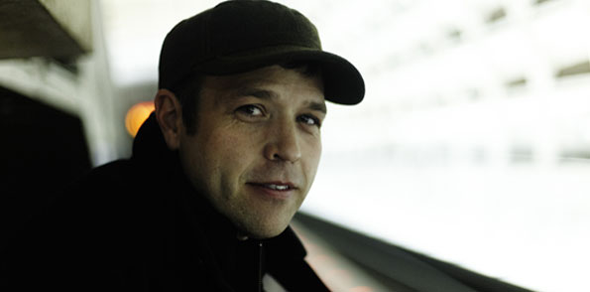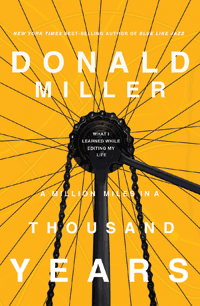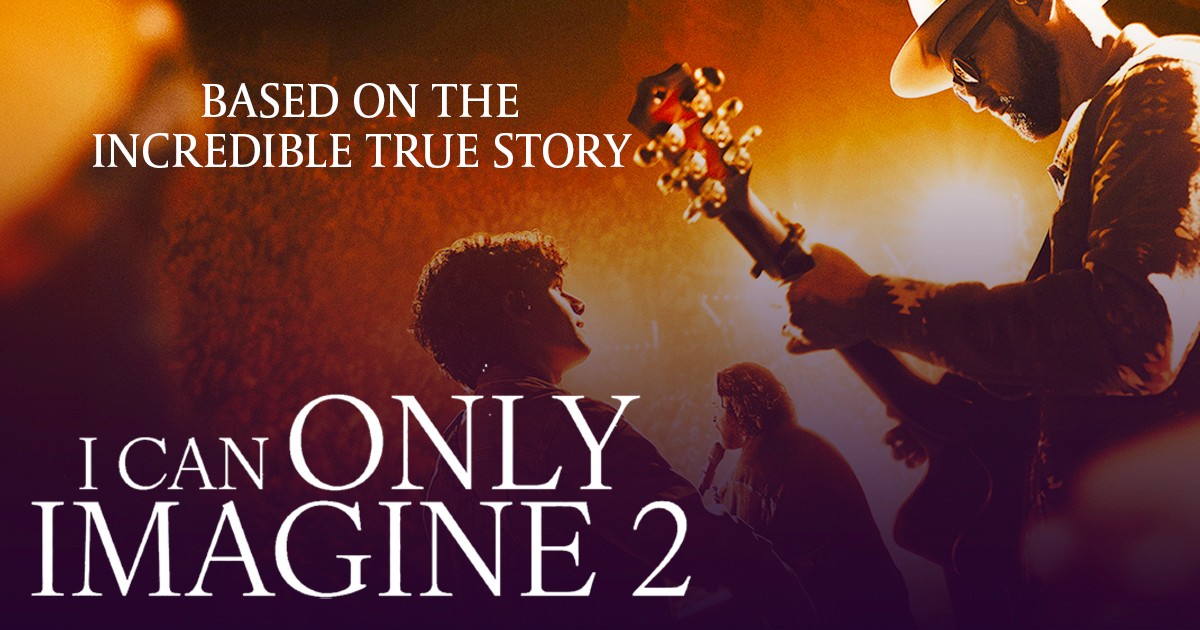 Donald Miller was in a funk. His phenomenally best-selling Blue Like Jazz had sold more than a million copies since its publication in 2003 and was a New York Times bestseller. “I got a big head about it for a while and thought I was an amazing writer,” he says, “but I've written books since that haven't sold, so I was insecure again and things were back to normal.” Now, Miller was avoiding talking to his publishers and had taken to sleeping in. One story had ended and he was uncertain how to start another.
Donald Miller was in a funk. His phenomenally best-selling Blue Like Jazz had sold more than a million copies since its publication in 2003 and was a New York Times bestseller. “I got a big head about it for a while and thought I was an amazing writer,” he says, “but I've written books since that haven't sold, so I was insecure again and things were back to normal.” Now, Miller was avoiding talking to his publishers and had taken to sleeping in. One story had ended and he was uncertain how to start another.
Then two movie producers telephoned him. Steve and Ben were interested in making a movie based on Blue Like Jazz and wanted to come up to Miller's home in Portland, Ore., to discuss it. “I hung up the phone and wondered what my life would look like on film,” Miller writes in his new book A Million Miles in a Thousand Years: What I Learned While Editing My Life. “I imagined myself at the theatre with a soda in my hand watching myself on the screen doing the things I do in real life.”
The Best Is Yet to Come
As Steve and Ben worked on fictionalizing Miller's life, they told him how the film needed a narrative arc, a structure that would help make sense of the themes for the viewer, and how his life would need to be edited. “We are going to take the essence of you and find the story,” Steve told Miller. The filmmakers explained to him that in a movie, every scene, every line of dialogue, has to propel the character forward. Not a second can be wasted.
As Miller helped the filmmakers with the screenplay and learned more about what goes into making a great movie, he realized that those elements are the same principles that go into making a great life, and he decided to apply them himself.
Miller challenges us to reach deep within ourselves to rewrite our story into the one God intended for us
Over the course of the following year, Miller edited himself into a better story, opening himself up to new experiences, journeys and relationships. For instance, he sought out and forgave his father, who had abandoned him as a child. He got into shape and hiked the gruelling Inca Trail in Peru. And he opened himself to the possibility of love and marriage. In the process, he transformed himself into a better “character.”
 Miller ended up a million miles from where he'd started: a changed man. “I could hardly process that I was once a person who had trouble getting out of bed in the morning or who struggled with fatalism,” he says in A Million Miles in a Thousand Years. “Since I've understood the power of story, the power of a good protagonist wanting something noble and overcoming conflict to get it, I haven't been able to go back to a normal life. I truly believe my best stories are ahead of me.
Miller ended up a million miles from where he'd started: a changed man. “I could hardly process that I was once a person who had trouble getting out of bed in the morning or who struggled with fatalism,” he says in A Million Miles in a Thousand Years. “Since I've understood the power of story, the power of a good protagonist wanting something noble and overcoming conflict to get it, I haven't been able to go back to a normal life. I truly believe my best stories are ahead of me.
“In living a great story,” he concludes, “we defy a dark force propagating what I believe to be a lie: that a human life is not worth living, that the story you have living within you is not worth telling.” Miller challenges us to reach deep within ourselves to rewrite our story into the one God intended for us. “How brightly a good story shines,” Miller states. “How easily the world looks to it in wonder. How blessed are we who hear these stories and how happy it makes us to repeat them.”
“I hope readers will take away some inspiration and encouragement from the book,” Miller said in a recent interview. “Life really is meaningful and it has intentionally been designed by God to be meaningful. It's not meant to be a mundane existence.”









Leave a Comment